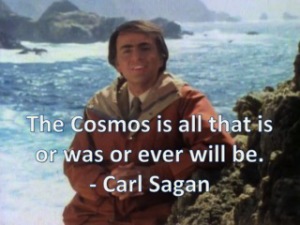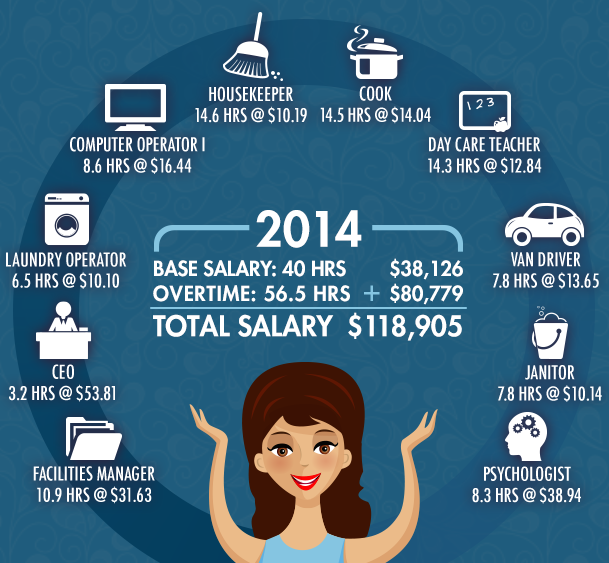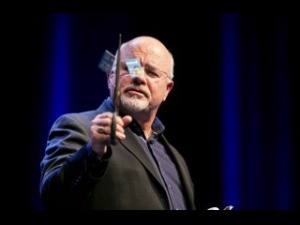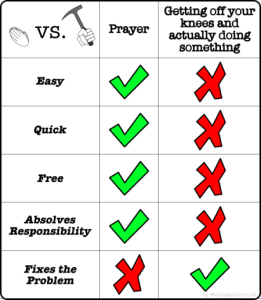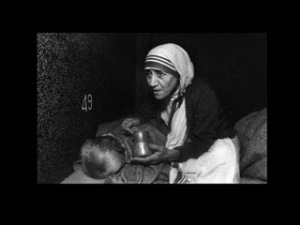(This is an approximate version of the sermon I gave on 10-26-2014).
The scripture passage for today is Acts 3:1-10. Before we read it together, keep in mind that in the early days of the church, no traditions or common practices had been established yet. They didn’t have designated meeting places (church buildings) or a liturgy or new music or guitars or systematic theology tomes or even the New Testament. All they had were some carry-over practices from Judaism. Jesus had ascended, but here we find Peter and John still going to the temple to worship.
Acts 3:1-10
Now Peter and John went up together to the temple at the hour of prayer, the ninth hour. And a certain man lame from his mother’s womb was carried, whom they laid daily at the gate of the temple which is called Beautiful, to ask alms from those who entered the temple; who, seeing Peter and John about to go into the temple, asked for alms. And fixing his eyes on him, with John, Peter said, “Look at us.” So he gave them his attention, expecting to receive something from them. Then Peter said, “Silver and gold I do not have, but what I do have I give you: In the name of Jesus Christ of Nazareth, rise up and walk.” And he took him by the right hand and lifted him up, and immediately his feet and ankle bones received strength. So he, leaping up, stood and walked and entered the temple with them—walking, leaping, and praising God. And all the people saw him walking and praising God. Then they knew that it was he who sat begging alms at the Beautiful Gate of the temple; and they were filled with wonder and amazement at what had happened to him.
A few bits of information to fill in about this scene: The beggar wasn’t at the gate of the temple for a spiritual or religious reason. He was there because it was simply a high-traffic area. He had been begging there regularly for many years. Each day, his friends would carry him to his usual spot by the gate and in the evening they would carry him back home. When Peter and John stopped to look at him, he just thought they where going to give him a handout.
Now we live in the rural USA, so do we have anything like this at home? Of course we do. How many of you have ever driven to Spokane for some kind of errand? Everyone of course. And what do you always see on the exit ramp on Division street? Several folks like this guy here:
It’s a good place to camp out because there is so much traffic. The beggar in Acts 3 was just doing the same thing. When I visited Ethiopia and went to church, it was just like this. There were many crippled people by the gate. Yes, some of them were there for the service too, but many of them were just trying to find a busy spot.
The beggar was hitting up the wrong fellows though if he wanted some cash. Peter and John were quite literally couch-surfing Apostles. They had left their day jobs several years ago and were staying with friends in Jerusalem who were giving them food and a place to sleep. They didn’t have a dime on them though they probably owned some property back in Galilee.
Now, I’ve heard a lot of sermons on this passage, and they nearly always fall into one of two categories:
- The cessationist position says, “Well, Peter and John didn’t have any money, but they had miracles! That’s nice, but we don’t have that anymore so all we can do is tell them Jesus loves them and preach at them. If we want to really help people we’re going to need some money. Let’s see if we can figure out how to get some money and buy them food or medicine or get them a job.”
- The Pentecostal/Charismatic position: “So exciting! Let’s all go out and heal people left and right in Jesus name just like Peter and John did. That would rock!”
I’d like to go in a different direction today than either of these. First, let’s look at another passage that I think often has more bearing on our thought these days.
James 2:14-16
What good is it, my brothers and sisters, if someone claims to have faith but has no deeds? Can such faith save them? Suppose a brother or a sister is without clothes and daily food. If one of you says to them, “Go in peace; keep warm and well fed,” but does nothing about their physical needs, what good is it?
It’s sometime said that people can’t hear the gospel on an empty stomach. In the past two millennia, Christians have been at the forefront of mercy ministry. Christians built many of the first hospitals all over the world. Who is on the front line fighting Ebola in West Africa right now? Christians. Who runs the food bank in our town? Who operators the hospital where my daughter had her eye surgery last year (and wrote off most of the bill!)? Who ran the orphanage she was from? The State? The Elks club? No. Christians! Christians who are familiar with this passage from James. Go them!
But, this focus on legitimate material needs can backfire and play into modern materialism. It can lead us to say, “Silver and gold have I not, so sorry man! You’re outta luck!”
What is materialism? It is the current standard, politically correct philosophy of the world. It is the idea that matter – the stuff you can look at under a microscope or a telescope is quite literally ALL there is. Beauty and love are just chemical reactions in your brain. Love is testosterone in your blood. All of that could be accounted for fully if we just had better instruments (coming soon!). There is certainly no God – that is just a social construct. What is real is the material world and there is nothing else.
If you grew up watching Carl Sagan on public television, you probably heard this a lot.
Virtually all modern secular ethics – everything from environmentalism to marriage law to the centrality of money stem from this key idea of materialism.
And we Christians may believe in God, but we can still get caught up in this kind of thinking. One characteristic result of materialism is the desire to quantify everything and convert all meaning into a dollar amount.
This poster is a good example:
Now on one hand, I appreciate what the creator of this infographic is trying to do. A stay-at-home mother does a tremendous amount of skilled work. The idea that they are inferior to their public career counterparts is a load of nonsense. Homeschooling mothers take this another step further. But see what is going on here? Every single minute of the day is given a price tag. The mother’s value doing the laundry is worth a couple dollars less than her work as a teacher. She’s being dehumanized. Her value is being deconstructed like the engine of a car or a substance in a laboratory.
“We are so obsessed with doing that we have no time and no imagination left for being. As a result, men are valued not for what they are but for what they do or what they have – for their usefulness.”
–Thomas Merton
Just this week, my friend Mike dropped everything he was doing to come help me move a broken washing machine out of my house. A couple nights later, my friend Seth drove me to the urgent care clinic when I injured my eye. Now, in theory, I could have paid someone to help me move the washer or I could have called a taxi for the drive across town. But the community that was built by their presence, by the talking that happened in the moments in-between, that was of substantial value and difficult to quantify. Science is bad at picking up that data and accounting for that value – it slips through the cracks.
“The dominant intellectual tradition of the West is one of order which seeks to discern understand, decipher, know, and if possible, master and control. Thus the biblical tradition of hope [for a redeemed future] lives in tension with the dominant intellectual tradition and often has not had its full say.” – Walter Brueggemann
I believe that this sort of eagerness to quantify everything has bled into our Christianity.
You all recognize this guy? It’s Dave Ramsey. He’s on stage cutting up a credit card, which is one of his trademark moves. Now Dave offers excellent advice on how to not go into debt and become a slave to the lender. He has tons of great practical wisdom on managing your money wisely. His “Financial Peace University” seminar is worth attending. I highly recommend it.
BUT, Ramsey is no prophet. No matter how many bible verses he quotes in his talks. Peace is found through… having enough set aside in savings to handle unexpected expense? Or is hope found in Jesus? Is our rest found in having enough of the right insurance if disaster strikes? Or is Jesus our rest? Hope for the future – is it found in having a big fat 401K retirement account, or in Jesus? Watch out. It’s easy to get too caught up in thinking about money in this way.
Moving on though, I’d like to address the chief way that we know materialism has bled into our faith: We suspect that prayer doesn’t actually do anything.
A guy I went to college with (who has since rejected Christianity) posted this on Facebook a few days ago. It’s supposed to be funny. It’s a checklist showing that prayer doesn’t do jack squat whereas getting off your butt actually does. I think that deep down, some of us Christians are suspicious that this might in fact be true.
What is our attitude toward someone like Mother Teresa of Calcutta? (These photos are of her working in the slums.)
Now the world things Mother Teresa’s work was just a big fat waste of time and money. She wasn’t a doctor after all. She didn’t actually heal people. She comforted the dying. If she had been a star surgeon, she would have some worldly respect but no – she “just” ran a home for terminal outcasts – you know, people God cares about.
Here’s another example. The wonderful documentary Into Great Silence came out a few years ago. It slowly follows the daily life of some Christian monks living deep in the French alps. Watch it some evening when you have a lot of uninterrupted time. It’s quite long.
Now, we enterprising high-work-ethic Americans can maybe appreciate monks that serve in practical and tangible ways that can measured. But these guys? Their entire ministry is to pray. That’s it. The world just laughs at them. “Bwahahahaha! All they do is pray? What a freakin’ waste.” Do we think the same thing though? Do we think this is an illegitimate ministry?
An online acquaintance of mine, Chaplain Mike, had this to say:
“One must have a specific calling to do this kind of work, for work it is. The Carthusians see themselves as the “heart” of the church and its mission in the world. As our hearts beat steadily, quietly, hidden deep within our chests, so these monks, hidden away in the French Alps, maintain a rhythmic pulse of solitude and community, prayer and work, day after day after day pumping oxygenated (Spirit-filled) life invisibly throughout the world.”
“Who can tell what we owe them?”
But what about all that stuff in James about how we need to minister to man’s physical needs? This does not invalidate prayer. The effectiveness of prayer is reinforced all over scripture:
Philippians 4:6-7
Do not be anxious about anything, but in everything, by prayer and petition, with thanksgiving, present your requests to God. And the peace of God, which surpasses all understanding, will guard your hearts and your minds in Christ Jesus.1 Timothy 2:1-2
I urge, then, first of all, that requests, prayers, intercession and thanksgiving be made for everyone – for kings and all those in authority, that we may live peaceful and quiet lives in all godliness and holiness.
And even in James, a few paragraphs later:
James 5:6
Therefore confess your sins to each other and pray for each other so that you may be healed. The prayer of a righteous man is powerful and effective.
So do we, as Christians think that prayer is a legitimate undertaking? If not, we are thinking like a materialist.
Now some of you might remember this hilarious Macguyver MasterCard commercial from a few years ago. Take a look.
Now what actually helps Macguyver escape from all the difficult circumstances he finds himself in? His awesome Swiss army knife? His clever inventiveness? No! It’s the script writers! They make sure that he always saves the day in the nick of time. The script writer in our story is God. He’s in control. How things work out? We call that God’s providence. It can look a lot like luck sometimes. But God is the author of reality, not us. We are not the primary agent at work making the world spin.
So, what do you have? What can you give?
- Your attention. You can listen. You can treat everyone you meet like a valuable human being.
- Your time. You can serve. If you are married you already have practice at this. If you have kids, you already have lots of practice. But the Christian community is a lot bigger than the nuclear family. You can cast a wider net.
- Your prayers. Prayer changes you, but, (and nobody knows quite how this works since God is unchangeable), in it some way it seems to change God too. Our prayers are not just sending messages in a bottle to nobody, but talking to an all-powerful God whose Holy Spirit is actively at work in time right now.
- Yourself. Who you are – what your station is in life. Don’t wish you were someone else or fall into the trap of feeling guilty because you don’t do someone as well as someone else. Love the people you’ve been given to love – your wife, your husband, your children, your friends. You can’t give yourself if you’re trying to be someone else.
- Silver and gold. As Americans in the 21st century, we really do have a ridiculous amount of cash compared to the rest of the world. Peter and John didn’t have any money, but you probably do. What are you doing with it?
Yes, I know it’s a bit ironic to circle back around to money, but I want to talk about a spiritual side-effect of giving for just a second.
If you are not using any of your money for charity right now, or to fund Christian ministry, and you are keeping it all to yourself, then if you were to start giving away, say, 10% of your income, would that lower your standard of living? Almost certainly it would. You’d have less money in the budget for food, or entertainment, or even important stuff like medical bills and tires for the car. So what do you gain? You gain a changed heart – a softer heart that is not QUITE as deeply entwined with the fleeting stuff of this world than it was before. And this is a very healthy thing – for your character, spiritually – for your soul, and quite possibly for your children too. If you don’t give anything, what does that communicate to your children? It says, “Piling up stuff for yourself is super important. Go do likewise.”
Now, rather than try to guilt trip you into giving more money (not what the sermon is actually about if you haven’t noticed), what I would rather you do is ask God to increase your faith so that giving more is something desirable to you.
What can you do?
- Ask the Holy Spirit to make you less selfish.
- Ask the Holy Spirit to give you more faith.
Lord Jesus Christ, increase in us the gifts of faith, hope and charity; and make us love what you command. Make us into less selfish people – willing to give silver and gold, or even better – courageous enough to give our selves. We praise you almighty God, for all you’ve given us. Amen.


